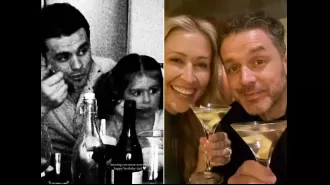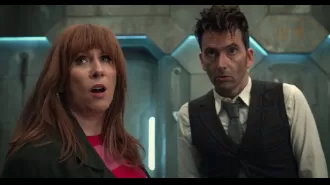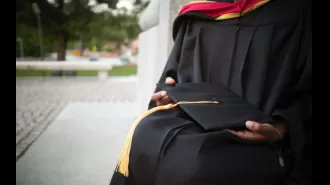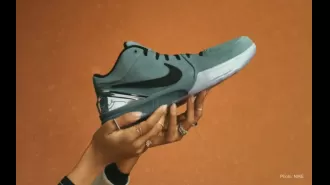Israeli Eurovision performance overshadowed by negative reaction from audience including boos and 'Free Palestine' chants.
Intense atmosphere detected.
May 8th 2024.
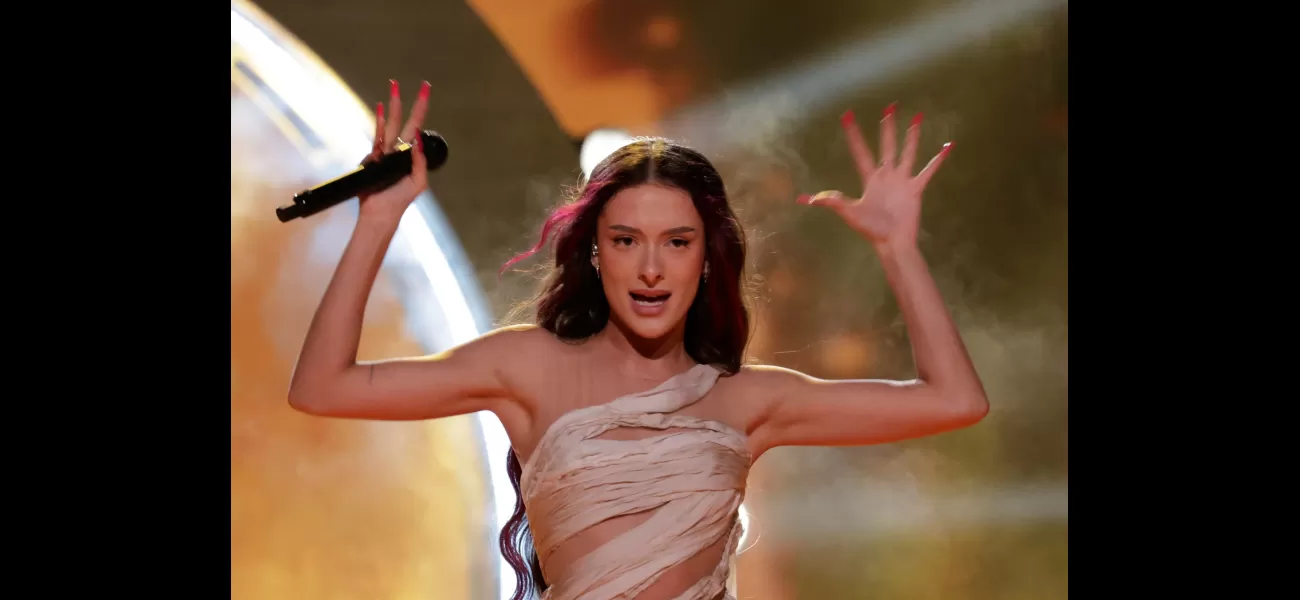
The Eurovision Song Contest has always been a highly anticipated event, with countries from all over the world coming together to share their music and culture. However, this year's competition in 2024 has been marred by controversy, as Eden Golan represents Israel amidst ongoing attacks on Palestinians in Gaza. The tension was palpable at Wednesday night's Jury Show, as videos posted on social media showed a chaotic scene with the audience booing and chanting "Free Palestine" during Golan's performance. It was almost as if the singer's voice was being drowned out by the loud protests.
Despite the fact that the winner of the competition is determined by television viewers, the juries still cast their votes at the Jury Show in case of any issues during the final performance. Many attendees shared their experiences on social media, with some describing the atmosphere as "horrible" and filled with tension. Others posted videos of the loud booing, clearly showing the disapproval of Israel's participation in the competition.
This backlash against Israel's involvement in Eurovision is not new, as there has been widespread criticism even before the event began. The country's ongoing attacks on Palestinians have sparked calls for a boycott of the competition. And in Malmö, the disapproval was evident as the audience's angry voices almost completely overpowered Golan's performance, as seen in the videos shared on social media.
One user even claimed that they were threatened with being kicked out for booing and chanting during Golan's performance, despite Eurovision's website stating that peaceful protests are allowed. The site emphasizes the organization's support for freedom of speech and the right to peaceful demonstration.
The controversy surrounding Israel's participation in Eurovision intensified when it was revealed that their original song entry contained lyrics that were perceived as anti-Palestine. This led to accusations of the country spreading propaganda and promoting a political message through their song. Eventually, Israel agreed to change the lyrics after facing backlash.
Even some of the performers from other countries have spoken out against Israel's involvement in the competition. Ireland's entry, Bambie Thug, openly stated their disagreement with the European Broadcasting Union's decision to include Israel in the contest.
In response to the backlash, some have taken more subtle forms of protest. Former Swedish contestant Eric Saade, who was a part of the opening act of the show, wore a keffiyeh, a symbol of support for Palestine, on his arm. Meanwhile, Israel's National Security Council has issued a warning against Israelis traveling to Malmö for the competition, citing concerns of targeted threats.
Despite all the controversy, the show must go on. The Second Semi-Final will be broadcast live on April 9 from Malmö, Sweden, with the Grand Final following on April 11. As always, Eurovision promises to be a night filled with drama, iconic moments, and behind-the-scenes gossip. And to keep up with all the action, you can join Metro's Eurovision community on WhatsApp, where you can share your reactions, vote for your favorites, and stay updated on everything happening in Malmö. So, let's keep the party going and celebrate the diverse music and cultures of the world!
Despite the fact that the winner of the competition is determined by television viewers, the juries still cast their votes at the Jury Show in case of any issues during the final performance. Many attendees shared their experiences on social media, with some describing the atmosphere as "horrible" and filled with tension. Others posted videos of the loud booing, clearly showing the disapproval of Israel's participation in the competition.
This backlash against Israel's involvement in Eurovision is not new, as there has been widespread criticism even before the event began. The country's ongoing attacks on Palestinians have sparked calls for a boycott of the competition. And in Malmö, the disapproval was evident as the audience's angry voices almost completely overpowered Golan's performance, as seen in the videos shared on social media.
One user even claimed that they were threatened with being kicked out for booing and chanting during Golan's performance, despite Eurovision's website stating that peaceful protests are allowed. The site emphasizes the organization's support for freedom of speech and the right to peaceful demonstration.
The controversy surrounding Israel's participation in Eurovision intensified when it was revealed that their original song entry contained lyrics that were perceived as anti-Palestine. This led to accusations of the country spreading propaganda and promoting a political message through their song. Eventually, Israel agreed to change the lyrics after facing backlash.
Even some of the performers from other countries have spoken out against Israel's involvement in the competition. Ireland's entry, Bambie Thug, openly stated their disagreement with the European Broadcasting Union's decision to include Israel in the contest.
In response to the backlash, some have taken more subtle forms of protest. Former Swedish contestant Eric Saade, who was a part of the opening act of the show, wore a keffiyeh, a symbol of support for Palestine, on his arm. Meanwhile, Israel's National Security Council has issued a warning against Israelis traveling to Malmö for the competition, citing concerns of targeted threats.
Despite all the controversy, the show must go on. The Second Semi-Final will be broadcast live on April 9 from Malmö, Sweden, with the Grand Final following on April 11. As always, Eurovision promises to be a night filled with drama, iconic moments, and behind-the-scenes gossip. And to keep up with all the action, you can join Metro's Eurovision community on WhatsApp, where you can share your reactions, vote for your favorites, and stay updated on everything happening in Malmö. So, let's keep the party going and celebrate the diverse music and cultures of the world!
[This article has been trending online recently and has been generated with AI. Your feed is customized.]
[Generative AI is experimental.]
0
0
Submit Comment

